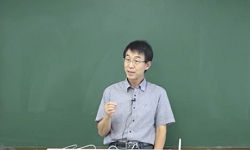In this paper we argue that Korean negative polarity items (NPIs) are interpreted above the scope of negation, in contrast to NPIs in English which are interpreted within the scope of negation. On the syntactic side, we argue that the grammar of Korea...
http://chineseinput.net/에서 pinyin(병음)방식으로 중국어를 변환할 수 있습니다.
변환된 중국어를 복사하여 사용하시면 됩니다.
- 中文 을 입력하시려면 zhongwen을 입력하시고 space를누르시면됩니다.
- 北京 을 입력하시려면 beijing을 입력하시고 space를 누르시면 됩니다.
https://www.riss.kr/link?id=A75036076
- 저자
- 발행기관
- 학술지명
- 권호사항
-
발행연도
2006
-
작성언어
English
- 주제어
-
KDC
701
-
등재정보
KCI등재
-
자료형태
학술저널
- 발행기관 URL
-
수록면
275-297(23쪽)
- 제공처
- 소장기관
-
0
상세조회 -
0
다운로드
부가정보
다국어 초록 (Multilingual Abstract)
In this paper we argue that Korean negative polarity items (NPIs) are interpreted above the scope of negation, in contrast to NPIs in English which are interpreted within the scope of negation. On the syntactic side, we argue that the grammar of Korean requires a syntactic licensing mechanism, to constrain the distribution of NPIs to only negative clauses. On the semantic side, we show that the semantic relation between an NPI and negation is itself constrained by a generalized version of the Immediate Scope Constraint (proposed by Linebarger (1987)), which requires that no other scopal element intervenes between an NPI and negation, regardless of their relative scopes.
동일학술지(권/호) 다른 논문
-
Variation in the Korean Integration of English Word-Final /s/
- 서울대학교 언어교육원 (구 서울대학교 어학연구소)
- Iverson, Gregory K.
- 2006
- KCI등재
-
English Loanwords and the Word-Final [t] Problem in Korean
- 서울대학교 언어교육원 (구 서울대학교 어학연구소)
- Davis, Stuart
- 2006
- KCI등재
-
Midway Coordination: ATB and RNR vs. PG Constructions in English
- 서울대학교 언어교육원 (구 서울대학교 어학연구소)
- Park, Myung-Kwan
- 2006
- KCI등재
-
Iconicity and Variation in the Choice of Object Forms in Korean
- 서울대학교 언어교육원 (구 서울대학교 어학연구소)
- Lee, Hanjung
- 2006
- KCI등재





 RISS
RISS




